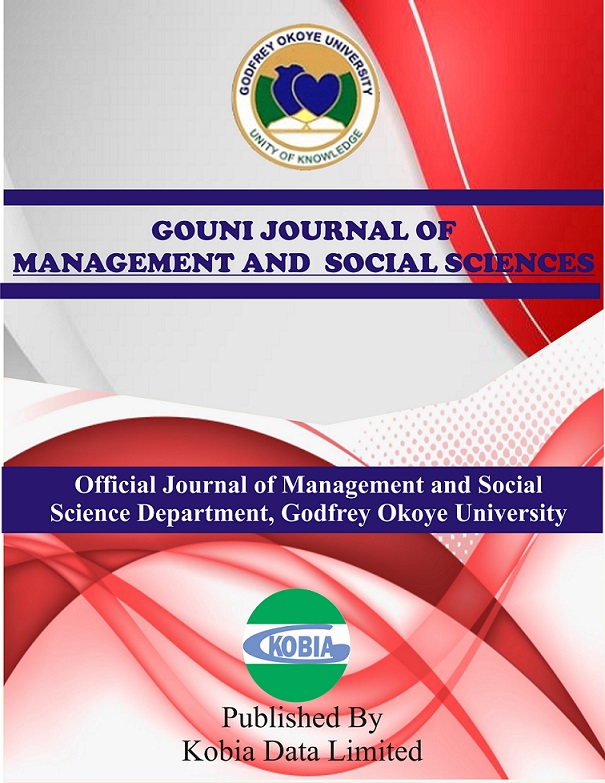GOVERNANCE DEFICIT AND THE MANAGEMENT OF COVID-19 PANDEMIC IN NIGERIA: AN ASSESSMENT
Abstract
This study provided an in-depth appraisal of the scope and effect of governance deficit on the management of COVID-19 pandemic in Nigeria. This assessment was prompted by the fact that lives of people are shaped and influenced by governance which entails the management of the political, administrative and socio-economic systems of a nation, wherein it is expected that the protection of lives of the people, provision of social services and infrastructures, protection of the rights of the people etcetera are of utmost importance hence accorded priority attention. Unfortunately, the contemporary socio-economic developmental realities in Nigeria portray and orbit around governance shortfalls which manifest in paucity of social infrastructures, abuse of human right and lack of transparency and accountability in the distribution and management of national resources. Premised on qualitative descriptive design and anchored on good governance theory, the study found that infrastructural deficits as observed in the Nigerian health, water and education sectors, weak transparency/accountability and abuse of rule of law impeded the effective management of COVID-19 pandemic in Nigeria. Consequently, the study recommended social infrastructure revamp, proper safeguard of human rights and re-orientation of security agencies for that purpose, proper demographic documentation and inbuilt monitoring mechanism as strategic measures to alleviate these hurdles and enhance pandemic management in Nigeria.Authors who publish with this journal agree to the following terms:
Authors grant the journal copyright
Authors are able to enter into separate, additional contractual arrangements for the non-exclusive distribution of the journal's published version of the work (e.g., post it to an institutional repository or publish it in a book), with an acknowledgement of its initial publication in this journal.
Authors are permitted and encouraged to post their work online (e.g., in institutional repositories or on their website) prior to and during the submission process, as it can lead to productive exchanges, as well as earlier and greater citation of published work.



